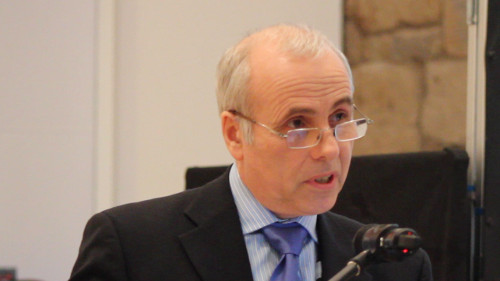
Interdisciplinarity is the warp and weft of this research venture. The central benefit of having such a range of disciplines, theoretical perspectives and empirical methods lies in forcing each of us to think differently, to start from somewhere, cast off the moorings, and journey somewhere new in stimulating company. If the voyage is going to be worthwhile, it will be one of discovery that will challenge us and all who take an interest in our findings.
In order to get a view of what may be expected and needed in this brave new world of digital creative economy, we commissioned a pre-launch study (download here). Contrary to the impression that is sometimes given, research in this field is broadly welcomed (with really only a very small number of intransigent voices). Interestingly, the critique (2 voices!) comes less from creators and firms than from industry bodies who find it hard to leave a train track of lobbying that has carried them in a direction that has probably already damaged the creative sector.
For the social scientists, the sample included 08 cultural institutions and organisations; 06 trade bodies representing different parts of the creative and cultural economy; 02 public sector stakeholders; and 05 private companies in the creative and cultural industries. Spread across the creative industries, these constituted 02 organisations involved in supporting the creative sector generally; 08 involved in the arts and cultural sector; 03 from publishing; 02 from music; 02 from digital media; and 02 from film/ TV/ broadcasting.
More generally, the initiative was seen as potentially very important so long as it delivers valuable, evidence-based knowledge at two levels – ‘macro’ (where research should be in a position to influence copyright policy in directions that will support the economic success and growth of the UK creative economy); and; ‘micro’ (where any research initiative should generate practical learning about effective business models that can be applied by organisations and companies in the creative and cultural industries).
While different participants identified different research themes as being of particular interest, there was a strong focus on two – 1) research on new and emergent business models; and; 2) research into the impacts of copyright on creative practice and the creative environment. Most of the consultees, however, felt that the research programme as defined was very comprehensive and wide ranging, and there were no major gaps.
Our fundamental philosophy is to evolve new, original thought and to make a difference to policy debate by providing well-evidenced analysis. We’re also here to make a difference to the workings of the cultural economy and to initiate and sustain what we expect will be a virtuous circle. We have the kind of excellent access that allows us to try to affect (and be affected by) what we learn of current developments from a wide range of individuals, organisations and enterprises, of varying scales.
We are mindful of breaking out of expert discourse to have a wider democratic and civil society impact. Here, we accord a key role to our effectiveness in using a wide array of communications platforms and making as much of our work as available as possible in open and accessible forms.
 Resource
Resource